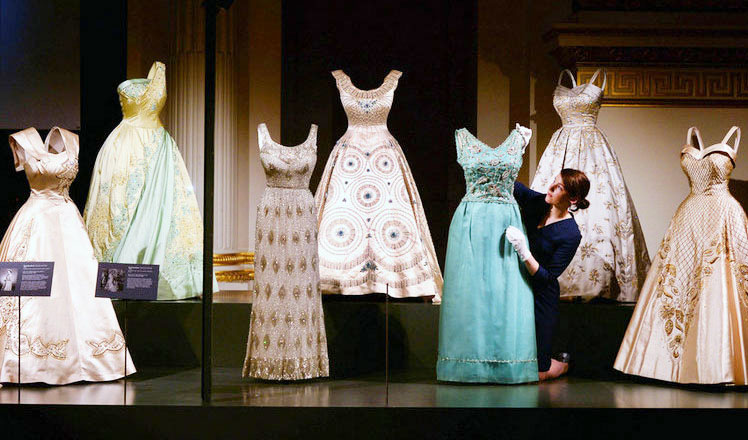Waiting for a rebound that may never come
Updated: 2016-07-26 07:57
By Zhao Xu and Zhang Kun(China Daily)
|
||||||||
As an auctioneer-cum-researcher, Ji Tao not only witnessed but participated as China's art and antiques market reveled in an unprecedented upsurge in the spring of 2011. "There were a lot of people and a lot of carousing. Anything that appeared at auction sold quickly, sometimes at jaw-dropping prices," he recalled.
The high was followed by a low as the bubble burst in the autumn of the same year. Five years later dealers are still waiting for it to rebound.
"The previous spell of gloom arrived in about 2006 and lasted for three years before things started to pick up in the spring of 2009. Now, five years have passed (since the start of the last market decline), and we are still hoping," Ji said.
He blamed an insane buying fever before the downturn for undermining the market. "Wealth accumulated in other sectors of the economy was flowing into the art and antiques market, fueling a misguided enthusiasm that ultimately boded ill for the future," he said.
However, not everyone was hit equally hard, and some people escaped relatively unscathed, according to Ji.
"They include the people who bought the 'cream', those who collected at the very top of the antiques-trading pyramid," he said. "The value and rarity of those precious items means they will easily weather the current market storm, only to become more sought-after in years to come."
This is where Ji believes the biggest misconceptions about collecting lie among nonprofessionals. "It would be naïve for anyone to equate buying any old antique with collecting and, therefore, investing. Some things may be genuinely old; for example, a little silver hairpin from 100 years ago, but there are so many of them that they have ceased to have any real value as collectible pieces," he said. "Like any other area of investment, only wealth can produce wealth. It's perfectly OK to buy a little silver hairpin for personal appreciation, but don't have any illusions when it comes to returns."
Yang Zhenbin, from the State-owned Suzhou Municipal Antique Store, believes the market downturn has had a sifting effect, which will result in credible dealers eventually surfacing as winners. "Like all State-owned antique stores with a long history, we ensure the authenticity of our merchandise-something that discerning clients definitely appreciate," he said, referring to the crowds that turned up at an antiques fair the store organized in the city on June 30 and July 1.
The Suzhou store also offers free connoisseur consultations for members of the public every month or so, partly to maintain its reputation as an authoritative establishment and partly to increase sales. It also provides training courses for industry insiders and dedicated lovers of antiques.
Wang Ge, an antiques dealer who recently opened a store in Beijing, said the overheated market needed to have a metaphorical bucket of ice poured over it: "People's sense could only be restored once they started to lose money. I'm not saying that people should stop buying-just try to buy things you love so much that selling is not a priority."
- The world in photos: July 18-25
- Cambodia hailed for upholding justice on maritime issue
- ASEAN countries urged to 'dispel disruptions'
- One dead, 12 injured in blast near Nuremberg, Germany
- Fashion of Queen Elizabeth on exhibition in London
- Hollande urges Britain to begin EU exit talks 'as soon as possible'

 Sunny images of 60-year-old go viral in China
Sunny images of 60-year-old go viral in China
 Xi'an battered by summer downpours
Xi'an battered by summer downpours
 Photographer uses traditional technique to capture images
Photographer uses traditional technique to capture images
 Now and then: Rebirth of Tangshan 40 years after quake
Now and then: Rebirth of Tangshan 40 years after quake
 Things you may not know about Major Heat
Things you may not know about Major Heat
 Unveiling the secrets of Elizabeth II’s wardrobe
Unveiling the secrets of Elizabeth II’s wardrobe
 Go global: Wanda's top 10 foreign acquisitions
Go global: Wanda's top 10 foreign acquisitions
 Hot pepper and ice tub challenge held in E China
Hot pepper and ice tub challenge held in E China
Most Viewed
Editor's Picks

|

|

|

|

|

|
Today's Top News
Ministry slams US-Korean THAAD deployment
Two police officers shot at protest in Dallas
Abe's blame game reveals his policies failing to get results
Ending wildlife trafficking must be policy priority in Asia
Effects of supply-side reform take time to be seen
Chinese State Councilor Yang Jiechi to meet Kerry
Chinese stocks surge on back of MSCI rumors
Liang avoids jail in shooting death
US Weekly

|

|







